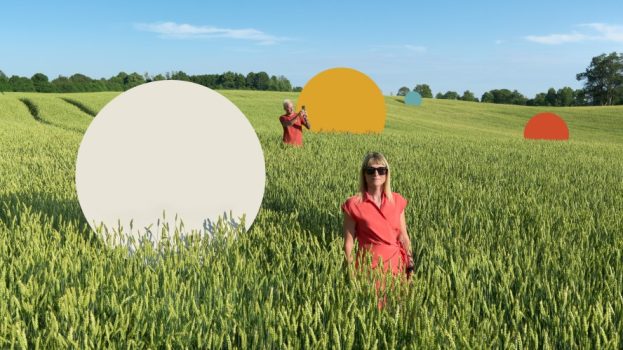 Brent Choi, Graham Candy and Erin Kawalecki wanted to transform the advertising industry when they set out in a new business endeavour together.
Brent Choi, Graham Candy and Erin Kawalecki wanted to transform the advertising industry when they set out in a new business endeavour together.
“We’ve all worked at network-minded agencies and have had a really good view into how decisions are made and prioritized at those places,” says Choi, who resigned from his role as CEO and CCO at DDB Canada before the agency’s restructuring last year. “We just knew there was a better play – a better way to work with clients and to treat our staff.”
To that end, the trio have partnered to launch Angry Butterfly, a new agency where Choi serves as CEO, with Candy as CSO and Kawalecki as CCO.
Born during the pandemic, the agency aims to help clients tackle the challenges of a rapidly-changing landscape. And so far, some of those clients have included the Dairy Farmers of Canada, Campari, Canadian Tire, Capilano University, Fire & Flower Cannabis, AutoIQ, Bally’s Gaming & Entertainment, Boston Pizza and WW (formerly Weight Watchers).
“We’re passionate people who were dissatisfied with the way things are and thought we could do it better,” adds Kawalecki, who, along with Candy, also left DDB in the months following the restructuring. “You need to have a certain energy to do this – I don’t think there’s anything passive about us.”
“Clients are looking for someone to help them take this difficult moment and create something from it that will help their business,” Choi told strategy. “That’s what we’ve made our business proposition.”
The agency aims to deliver on its promise by embracing three key ideas, which it calls the “three As”: anthropology, artistry and agility, according to Candy.
Candy comes from an anthropology background: he has a PhD in the discipline from the University of Toronto, and has incorporated that expertise into much of his work in the past for agencies including Diamond and DDB.
With Angry Butterfly, he has assembled a small strategy team that can “swarm” a client’s business problems. That team includes anthropologists such as himself who “can help think about business problems and understand culture in a really nuanced way,” as well as data scientists and business strategists, who tackle the issue from other angles.
The team then hands off its insights to Angry Butterfly’s creatives to deliver on its “second A” – artistry.
“That’s Brent, Erin and their teams – really talented and seasoned, creative people,” he says. “When you pair them with solid insights, you start to get really solid work.”
But all of that effort “is kind of meaningless in the end if you can’t do it at speed,” adds Candy, which is where agility comes in.
“Our culture is moving very quickly, and peoples’ businesses are moving quickly. Thriving in chaos is something a lot of agencies speak to, but actualizing that is a different thing,” he says. “Our combination of really deep, cultural intelligence and data analysis with artistry and speed is what clients are really resonating with right now.”
That resonance has helped Angry Butterfly grow quickly since soft launching nine months ago. The team currently includes 18 full-time staff and 10 contract employees from a wide array of backgrounds, including tech start-ups and photography as well as machine learning and 3D modelling.
The varied experiences of its staff creates a “diversity of thinking” that provides “fuel for creativity,” says Kawalecki, and gives Angry Butterfly a broader base from which to deliver both standard agency work such as TV spots and rebrands, as well as more upstream thinking – something which Choi says more brands have been seeking out in recent years, especially amid the pandemic.
“It’s not just, ‘here’s an advertising brief, come up with a TV spot.’ We do that, as well. But it’s more often, ‘here’s our business problem, how do we solve this with strategy and creativity?’” explains Choi. “That may mean a new product, distribution, partnership or even just a social post.”























